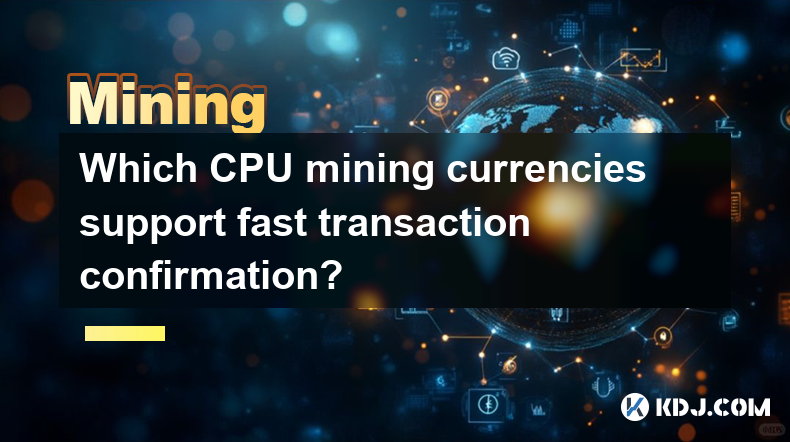-
 Bitcoin
Bitcoin $87,356.7866
2.55% -
 Ethereum
Ethereum $1,638.7142
1.49% -
 Tether USDt
Tether USDt $1.0000
0.00% -
 XRP
XRP $2.1170
1.59% -
 BNB
BNB $603.9416
1.60% -
 Solana
Solana $140.7449
-0.10% -
 USDC
USDC $1.0000
0.01% -
 Dogecoin
Dogecoin $0.1612
1.47% -
 TRON
TRON $0.2446
0.70% -
 Cardano
Cardano $0.6403
1.48% -
 Chainlink
Chainlink $13.5386
3.52% -
 UNUS SED LEO
UNUS SED LEO $9.4122
0.71% -
 Avalanche
Avalanche $19.9770
0.38% -
 Stellar
Stellar $0.2522
2.41% -
 Toncoin
Toncoin $3.0278
0.79% -
 Shiba Inu
Shiba Inu $0.0...01274
3.15% -
 Sui
Sui $2.2177
2.58% -
 Hedera
Hedera $0.1707
2.77% -
 Bitcoin Cash
Bitcoin Cash $338.7540
-0.36% -
 Polkadot
Polkadot $3.9033
-0.91% -
 Hyperliquid
Hyperliquid $18.1086
-1.54% -
 Litecoin
Litecoin $78.6965
2.64% -
 Bitget Token
Bitget Token $4.5466
-0.88% -
 Dai
Dai $0.9999
0.00% -
 Ethena USDe
Ethena USDe $0.9993
0.02% -
 Pi
Pi $0.6368
-2.12% -
 Monero
Monero $215.6237
-0.53% -
 Uniswap
Uniswap $5.4295
1.63% -
 Pepe
Pepe $0.0...07859
4.81% -
 Aptos
Aptos $5.1258
4.53%
Which CPU mining currencies support fast transaction confirmation?
While CPU mining offers lower profitability, some cryptocurrencies like Monero and Grin prioritize speed, providing relatively fast transaction confirmations despite using CPU-friendly, ASIC-resistant algorithms. However, network congestion can still impact confirmation times.
Mar 22, 2025 at 12:21 am

Key Points:
- Certain cryptocurrencies, prioritizing speed and low transaction fees, are more efficiently mined using CPUs, despite the generally lower profitability compared to GPUs or ASICs.
- Transaction confirmation speed depends on the specific cryptocurrency's consensus mechanism and network activity. Faster block times generally translate to faster confirmations.
- CPU mining is primarily suitable for smaller, less computationally intensive cryptocurrencies.
- Choosing a CPU-mineable coin with fast transaction confirmation requires research into its block time and network congestion.
Which CPU Mining Currencies Support Fast Transaction Confirmation?
The question of which CPU-mineable cryptocurrencies boast fast transaction confirmation times is multifaceted. While CPU mining isn't generally the most profitable approach, several coins cater to this niche, prioritizing speed over sheer processing power. The "fast" part is relative and depends heavily on the specific coin's blockchain technology and current network load.
Let's explore some factors that influence transaction confirmation speeds:
- Consensus Mechanism: Proof-of-Work (PoW) coins, even those mineable by CPUs, can have varying block times. Some PoW systems prioritize faster block creation, leading to quicker confirmations. Proof-of-Stake (PoS) systems, on the other hand, often have faster confirmation times because they don't rely on computationally intensive mining. However, PoS coins are rarely CPU mineable.
- Network Congestion: Even with a cryptocurrency designed for fast transactions, high network activity can lead to delays. If many transactions are competing for inclusion in a block, confirmation times will increase.
- Block Time: This is the average time it takes for a new block to be added to the blockchain. Shorter block times directly translate to faster transaction confirmation speeds. Look for coins with block times measured in seconds rather than minutes.
So, which coins fit the bill? While a definitive list is difficult due to the constantly evolving crypto landscape, some cryptocurrencies historically known for relatively fast transactions and being (at least partially) CPU mineable include:
- Monero (XMR): Monero uses CryptoNight, a PoW algorithm designed to be ASIC-resistant, making it more accessible to CPU miners. While not blazingly fast compared to some other systems, Monero's transaction confirmations are generally quicker than many other PoW coins. However, its privacy features can add complexity.
- Grin: Grin is a privacy-focused cryptocurrency that uses the Cuckoo Cycle algorithm, another ASIC-resistant algorithm. Its block time is relatively short, contributing to reasonably fast transaction confirmations. However, Grin's popularity and mining community are relatively small.
- Bytecoin (BCN): Bytecoin utilizes the CryptoNight algorithm, similar to Monero. Its transaction speed depends on network conditions, but generally falls within a reasonable timeframe. However, its overall market capitalization and community size are considerably smaller than Monero's.
Finding Suitable Coins:
To find other suitable options, you need to research individual cryptocurrencies. Consider these steps:
- Check the project's whitepaper: This document outlines the cryptocurrency's technical specifications, including the consensus mechanism and target block time.
- Explore the cryptocurrency's explorer: Blockchain explorers provide real-time data on network activity, including transaction confirmation times. This allows you to observe the actual confirmation speed under current conditions.
- Look at mining pools: Mining pools often provide information about the profitability and hashrate of different cryptocurrencies. This gives you an idea of the mining difficulty and how competitive the space is.
- Understand the algorithm: ASIC resistance is a key factor for CPU miners. Algorithms designed to be ASIC-resistant will give you a better chance of successful mining.
Common Questions:
Q: Is CPU mining profitable for fast transaction confirmation coins?
A: Generally, no. The profitability of CPU mining is significantly lower compared to GPU or ASIC mining due to the lower processing power. You'll likely earn very little, even with fast-transaction coins.
Q: Are there any risks involved in CPU mining?
A: Yes, the primary risks include the low profitability, the potential for hardware damage due to overheating (especially if you're mining intensely), and the volatility of cryptocurrency prices.
Q: How can I monitor transaction confirmation times?
A: Use a blockchain explorer specific to the cryptocurrency you are interested in. These explorers provide real-time data on transaction status and confirmation times.
Q: What are the best CPU mining pools for fast confirmation coins?
A: The "best" pool depends on the specific cryptocurrency. Research pools that support the coin you're mining and have a good reputation for payouts and reliability. Many smaller pools cater specifically to CPU miners of niche cryptocurrencies.
Q: Are there any other factors that impact transaction confirmation times besides the block time?
A: Yes, network congestion, transaction fees (higher fees often incentivize faster processing), and the specific implementation of the consensus mechanism all play a role.
Disclaimer:info@kdj.com
The information provided is not trading advice. kdj.com does not assume any responsibility for any investments made based on the information provided in this article. Cryptocurrencies are highly volatile and it is highly recommended that you invest with caution after thorough research!
If you believe that the content used on this website infringes your copyright, please contact us immediately (info@kdj.com) and we will delete it promptly.
- The Solana network briefly surpassed Ethereum in total staked value, sparking debate over whether it is actually bullish or bearish.
- 2025-04-21 12:45:13
- Filecoin and Algorand Ground Blockchain in Reality, Qubetics Skyrockets As Top Cryptos to Watch
- 2025-04-21 12:45:13
- Bitcoin reclaims the $87,000 level, while XRP Flashes Bearish Signals and Dogecoin Celebrates “Dogeday”
- 2025-04-21 12:40:13
- Pi Network (PI) Price Briefly Spikes 4% After Releasing Long-Awaited Mainnet Migration Roadmap
- 2025-04-21 12:40:13
- Top Crypto Coins 2025: Web3 ai, Tron, Dogecoin & Kaspa
- 2025-04-21 12:35:13
- Ethereum's Make-or-Break Moment: Can It Regain Its Edge?
- 2025-04-21 12:35:13
Related knowledge

How to judge the stability and reliability of the mining pool?
Apr 19,2025 at 02:08pm
When engaging in cryptocurrency mining, choosing the right mining pool is crucial for maximizing your returns and ensuring a stable mining experience. The stability and reliability of a mining pool can significantly impact your overall success in mining. Here, we will explore the key factors to consider when evaluating the stability and reliability of a...

How to deal with abnormal noise during mining machine operation?
Apr 17,2025 at 01:35am
Mining machines are essential tools for cryptocurrency miners, but they can sometimes produce abnormal noises that may indicate underlying issues. Understanding how to identify and address these noises is crucial for maintaining the efficiency and longevity of your mining equipment. This article will guide you through the process of dealing with abnorma...

How to choose the right ASIC mining machine model?
Apr 21,2025 at 08:00am
Choosing the right ASIC mining machine model is crucial for maximizing your returns in cryptocurrency mining. The market offers a variety of ASIC miners, each with its own set of specifications and performance metrics. Understanding the key factors that influence your choice can help you make an informed decision that aligns with your mining goals and b...

How to maintain anonymity when mining?
Apr 17,2025 at 06:01pm
Maintaining anonymity when mining cryptocurrencies is crucial for many miners who wish to protect their privacy and security. This article will guide you through various strategies and tools that can help you achieve a high level of anonymity while engaging in mining activities. Understanding the Importance of Anonymity in MiningAnonymity in the context...

How to automate mining tasks through scripts?
Apr 18,2025 at 01:29pm
In the world of cryptocurrency, mining remains a crucial activity for generating new coins and securing blockchain networks. Automating mining tasks through scripts can significantly enhance efficiency and reduce manual labor. This article delves into the intricacies of automating mining tasks, providing a comprehensive guide on how to achieve this usin...

How to switch mining algorithms in the mining pool?
Apr 18,2025 at 12:00pm
Switching mining algorithms in a mining pool can be a strategic move for miners looking to optimize their mining operations. This process involves several steps and considerations, and understanding how to navigate it can significantly impact a miner's efficiency and profitability. In this article, we will explore the detailed steps required to switch m...

How to judge the stability and reliability of the mining pool?
Apr 19,2025 at 02:08pm
When engaging in cryptocurrency mining, choosing the right mining pool is crucial for maximizing your returns and ensuring a stable mining experience. The stability and reliability of a mining pool can significantly impact your overall success in mining. Here, we will explore the key factors to consider when evaluating the stability and reliability of a...

How to deal with abnormal noise during mining machine operation?
Apr 17,2025 at 01:35am
Mining machines are essential tools for cryptocurrency miners, but they can sometimes produce abnormal noises that may indicate underlying issues. Understanding how to identify and address these noises is crucial for maintaining the efficiency and longevity of your mining equipment. This article will guide you through the process of dealing with abnorma...

How to choose the right ASIC mining machine model?
Apr 21,2025 at 08:00am
Choosing the right ASIC mining machine model is crucial for maximizing your returns in cryptocurrency mining. The market offers a variety of ASIC miners, each with its own set of specifications and performance metrics. Understanding the key factors that influence your choice can help you make an informed decision that aligns with your mining goals and b...

How to maintain anonymity when mining?
Apr 17,2025 at 06:01pm
Maintaining anonymity when mining cryptocurrencies is crucial for many miners who wish to protect their privacy and security. This article will guide you through various strategies and tools that can help you achieve a high level of anonymity while engaging in mining activities. Understanding the Importance of Anonymity in MiningAnonymity in the context...

How to automate mining tasks through scripts?
Apr 18,2025 at 01:29pm
In the world of cryptocurrency, mining remains a crucial activity for generating new coins and securing blockchain networks. Automating mining tasks through scripts can significantly enhance efficiency and reduce manual labor. This article delves into the intricacies of automating mining tasks, providing a comprehensive guide on how to achieve this usin...

How to switch mining algorithms in the mining pool?
Apr 18,2025 at 12:00pm
Switching mining algorithms in a mining pool can be a strategic move for miners looking to optimize their mining operations. This process involves several steps and considerations, and understanding how to navigate it can significantly impact a miner's efficiency and profitability. In this article, we will explore the detailed steps required to switch m...
See all articles






















































































